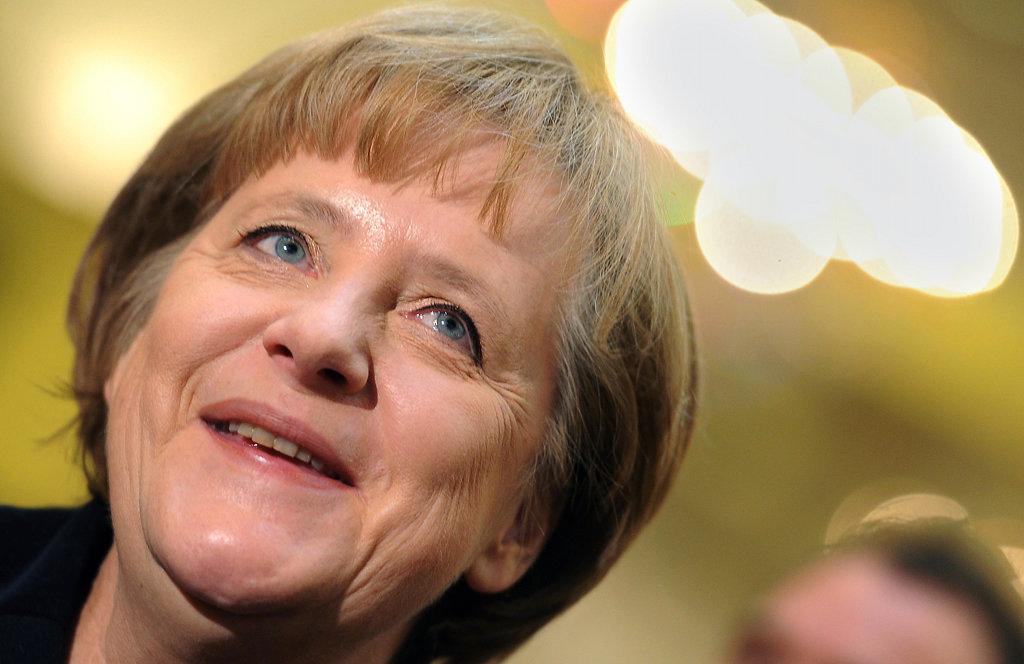Europe: Thanksgiving? por nada
Chancellor Merkel is constantly under the spotlight but now the glare is growing brighter as the bond markets are beginning to attack Germany. Will this force the Chancellor and her colleagues to change their policy on allowing the European Central Bank to be more proactive in solving the euro zone debt crisis?
Thanksgiving may be an American holiday but U.S. culture has been ubiquitous for so long that it is part of the atmosphere in Europe as well. Certainly those who work in the financial industry are aware of it.
It's one of those blessed days when Wall Street sleeps and so might provide a bit of rest for harried traders and Goldman Sachs partner track aspirants who work a 12 hour European day then have to hang around until New York HQ opens and bosses them about for a couple of hours more.
But today there are very few reasons "at the macro" level for people across Europe to feel thankful.
Yesterday the euro zone debt crisis arrived squarely on the doorstep of Germany. At an auction, the country only managed to sell 2/3rds of the 10-year bonds it offered for sale. This is the starkest evidence that investors feel the euro will not survive. German bond yields are very modest because its economy has been considered safe. Germany has none of the sovereign debt problems of Greece, Italy, Spain, or Portugal. Yet it could not sell its paper.
There were plenty of traders willing to interpret the meaning of the failed auction. And all of their interpretations were negative.
This morning German bond yields started to rise … if one of the strongest and best balanced economies in the world – the locomotive of the euro zone – has to start paying significantly more to borrow then … what? Will it be enough for Germany's political leadership to finally accept the reality that the country will have to allow the European Central Bank greater latitude in fighting the debt crisis? Or will the leadership try to tough it out, even if it means the disintegration of the euro?
The ECB is reported to be top of the agenda at talks being held today in Strasbourg attended by German chancellor Angela Merkel, French President Nicolas Sarkozy and recently appointed Italian Prime Minister, Mario Monti.
I'm not sure whether Europe's citizens are thankful that meeting is taking place or not.
And for those citizens who sit outside the euro zone – like in Britain – Thanksgiving rings a little hollow this year, as well. The latest figures from the Office of National Statistics shows average pay rose by 1.4 percent in this country last year. With inflation currently running at over 5 percent that is a 3.6 percent decline in real income in the last year.
Every day, reporters and producers at The World are hard at work bringing you human-centered news from across the globe. But we can’t do it without you. We need your support to ensure we can continue this work for another year.
Make a gift today, and you’ll help us unlock a matching gift of $67,000!
